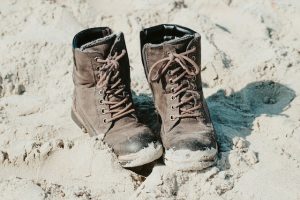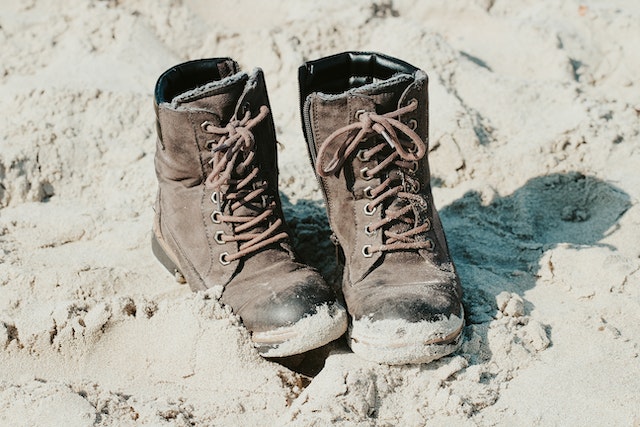
And He said, “Do not draw near here. Take your shoes off your feet, because the place upon which you stand is holy soil.” (Shemos 3:5)
is holy soil: The place – Rashi
Why is Moshe instructed to take off his shoes? How is this place where the Torah is to be given already holy? Nothing has happened there yet? What is the business of removing shoes?
More than 30 years ago, while running a program for prisoners, I brought a colleague of mine who travels widely as a guest speaker. Because the prisoners crave to know what’s going on “out there” and they live vicariously through the adventures of others, they nudged the Rabbi with desperation to tell them where he had been recently. He answered glibly, “I was just in the world’s largest prison and there I confronted the most- fierce warden of them all!” Some started to guess which place and which person he was referring to.
After they got quiet, he told them, “The largest prison in the world is the whole world!” I felt an awkward silence in the room and I glanced up sideways signaling that he ought not to continue peddling these soft parables or this was going to be a long night or a short night. As I expected, they chorused “All of us would love to go to that prison! Let us go out there!” The second answer shed light on the first and his words became poignantly clear. “Who’s that fierce warden? Myself!” He explained “This guard keeps you from going a few feet to your left and right! This one stops you from getting beyond that point! I have my limitations too. If I travel north, I cannot go south. Of course, my limitations are far more expansive than yours on a horizontal plane, but who keeps us from going up, from climbing vertically, transcending the confines of this place and reaching the fullness of our real potential, even here in prison!? Nobody stops us but ourselves!”
I know it was 30 years ago, because my wife gave birth a week later, on Shabbos Tisha B’Av to a baby boy who turned 30 this past Tisha B’Av. Thirty seconds into the world, I held him for the first time. Maybe it was the footprint reminding me of the finger printing when entering prison but the first unrehearsed words that escaped my mouth at that time were, “Welcome to the prison!”
My wife looked up at me with bewilderment. I owed her an explanation but I needed to explain it to myself first. It dawned on me that here, this lofty soul, a breath from The Almighty Himself, bigger and brighter than anything in this universe, aware of the whole Torah on some sublime level has just been crushed into this tiny body, sans teeth and sans vocabulary. He thinks he wants soda and pizza but deep-deep down he wants much-much more. We pray for the wisdom of the warden.
After that visit to the prison, we launched a new orientation program for anyone entering the prison system. We would ask him, “Where do you live?” The fellow would answer, “Green Haven!” The question would persist, “Where do you live?” The answer would expand to “New York”. Again, the question and then, “America” and next the “world?”! Very nice but where are you??? The answer we repeated till it was real: “We are in front of HASHEM!” If that’s your mind-set then you are not in prison! Sure, your feet are here in this shoe but that’s not where you need to be a whole day! The Baal Shem Tov said, “Wherever a person’s thoughts are, that is where he is entirely!”
The Talmud has a debate about how Adam – Man was created. From which lot of dust did HASHEM shape that first man? One opinion is that he was made entirely from dust at the location of the Holy of Holies while the other approach is that only his head was made from that earth and the rest was collected from all over the world.
This creates two types of human movements, two types of people. Some feel a compelling need to travel the world horizontally while others come to a realization that their ambition is to climb vertically, endlessly, from where they are, as depicted in the imagery of Yaakov Avinu’s ladder.
On a practical level, removing one’s shoes is a demonstration of a commitment to being where you’re at. On a deeper level, a “NAAL” – literally a shoe means a lock as well. Stepping out of the prison of this body, this tiny lock that clothes and holds this lowest part of our being opens one up to the possibility of living in front of HASHEM. That transforms this place, wherever we are so aware into a holy place.


